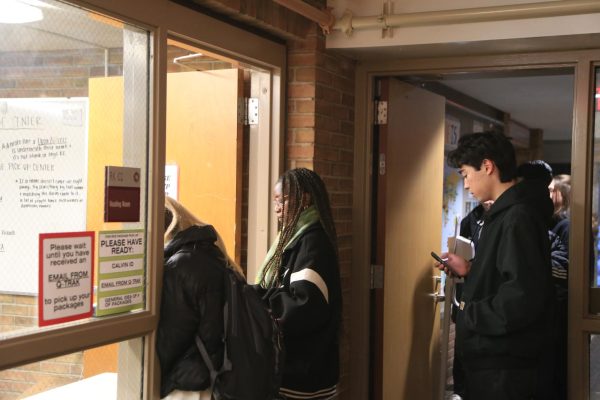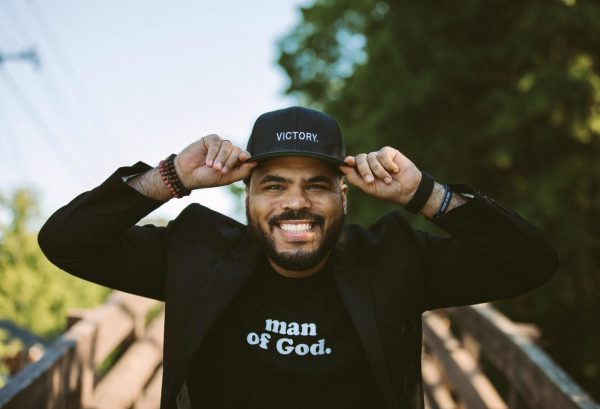CCCU commends new birth control exemption
The Council for Christian Colleges and Universities (CCCU) issued a statement on Wednesday, Oct. 6, praising the Trump administration’s expansion of the religious exemption to the Affordable Care Act’s (ACA) birth control mandate.
The ACA requires that employers offer health insurance plans to their employees that cover contraceptives, emergency contraceptives and sterilization procedures. Some religious communities oppose offering emergency contraceptives and other methods that act after conception because they’re considered abortion-causing, according to Shapri LoMaglio, the CCCU’s vice president for government and external relations.
Under the initial 2011 rules, exemptions to the birth control mandate were available only to churches that met a specific set of criteria. Pressure from religious groups, including the CCCU, later prompted the Obama administration to expand that exemption to all churches and create a lesser accommodation for other religious organizations, LoMaglio said.
LoMaglio explained that this accommodation was still inadequate for the CCCU’s member institutions because it protected some types of religious institutions, like churches, more than others, like Christian colleges.
“The government was trying to use federal law to declare churches and religious organizations owned by churches to be more religious than other types of religious organizations,” LoMaglio said.
These new rules, however, offer the full exemption to any organization that claims religious objection to any of the mandated contraceptives.
“The government should never have put itself in the role of determining the depth of religious conviction,” said Shirley Hoogstra, president of the CCCU, in their statement. “This new interim final rule is a necessary corrective in restricting the government’s interference with religious convictions.”
(Hoogstra served as Calvin’s vice president for student life from 1999 to 2014 before moving to the CCCU.)
President Michael Le Roy offered no opinion on the CCCU’s statement, though he did emphasize the importance of protecting the freedom of all religious institutions:
“Because Calvin College is faith-based and our mission is an expression of the free exercise of religion, we support the first amendment,” Le Roy said. “It is consistent and appropriate for Calvin to expect that first amendment protections be extended to any religious community in our country.”
The CCCU and several of its member institutions have advocated for changes like these since the ACA’s mandate first took effect in 2011, LoMaglio said. A 2011 letter challenged the ACA’s narrow religious exemption to the contraceptive mandate and asked for an exemption that included institutions of higher education.
This letter was signed by executives and administrators from the CCCU and several of its member institutions. Stephen Monsma, then a senior research fellow at Calvin College, also signed it.
Doug Koopman, professor of political science at Calvin, explained that the CCCU advocated for this change in order to support its member institutions.
“[The CCCU’s] professional obligation is to advocate for their members in these different contexts when institutional religious freedom and the right to operate according to Christian principles as those institutions define them is at stake,” Koopman said.
Calvin’s health insurance plans for staff and faculty cover all forms of contraceptives mandated by the ACA, according to Andy George, director of human resources. This includes emergency contraceptives like the prescription drug Ella.
Calvin’s health services does offer birth control pills and other forms of contraceptives to students, but does not offer emergency contraceptives. Healthcare options for students, however, are not part of the ACA employee insurance mandate.
Laura Champion, director of health services, decides what birth control options are in Calvin’s formulary. She objected to the ACA’s definition of “contraception,” which includes birth control methods that prevent the implantation of an embryo.
“I happen to believe that life starts at conception. That’s what a lot of people believe in the medical field, even outside of Christianity,” said Champion. “The problem is the way the birth control mandate was set up. It defines life as starting at implantation.”
Some worry that the wider religious freedom exemptions limit the freedom of individual women to make their own healthcare choices:
“What I worry about is using religious freedom as an excuse to discriminate against women and limit their choices,” said Joseph Kuilema, professor of social work at Calvin College. “If that becomes how we think about religious freedom, I think we are cheapening the concept and playing into the worst stereotypes that people have about Christians, which is that Christians fundamentally want to control people.”
However, Champion argued that that religious freedom protections offer the opportunity for religious institutions to have a healthy balance between their own religious convictions and the needs of their employees.
“We live in a beautiful place where there’s lots of diversity of belief and culture,” said Champion. “To be able to meet the needs of our patients and still allowing us to have opportunity to live according to our own personal convictions, then that actually is a very healthy tension to hold.”












Joseph Kuilema • Oct 30, 2017 at 11:50 am
I wanted to add that this move also amounts to a tax increase on women. As the New York Times recently highlighted, “The Affordable Care Act’s requirement that health insurance offer birth control without cost-sharing has resulted in an estimated 57.6 million American women getting contraception without a co-payment. That has saved them a huge amount of money: $1.4 billion in 2013 alone.”
Jane Vander Meer • Oct 20, 2017 at 9:21 pm
This is wrong. I disagree with Ms. Champion’s claims that “life begins at conception, That’s what a lot of people believe in the medical field, even outside of Christianity”. That is simply not true–the medical field has overwhelming agreed that they cannot determine when life begins. Is it at conception or at the start of pregnancy? Medically these are 2 very different things. This policy is based on religious right extreme views, that of course “as Christians” we would support anything related to pro-life. It’s disappointing–I thought Calvin was supportive of reviewing scientific evidence and current medical consensus.
The fact that a college health center would not provide emergency contraception is just wrong. Emergency contraception is basic health care, and withholding it is not “meeting the needs of our patients”. Research shows that at least one in four college women are victims of sexual assault. Do they not deserve easy access to emergency contraception? Do they not deserve to feel that Calvin’s Health Center would be a safe place to disclose?
I am a graduate of Calvin’s nursing program and a Women’s Health Nurse Practitioner, and am so sad to see that Calvin would support this policy of the Trump administration. Use your brain, review the evidence, and be strong enough to stand up for what is right instead of what the extreme religious right is clinging to. These articles are what make people leave the church–policies that are judgmental and sanctimonious..
Amy Schepers • Oct 21, 2017 at 1:58 pm
I agree completely with you, Jane! As a fellow graduate of Calvin and a health care provider [physical therapist], I am discouraged to see Calvin align with the CCCU/”religious right”. While it is a consolation that Calvin at least provides basic contraception coverage for its employees, it is very problematic that the anti-scientific decision of one person (Dr. Champion) has prevented Calvin from offering emergency contraception to students. This is absolute gender discrimination and negligent health care.